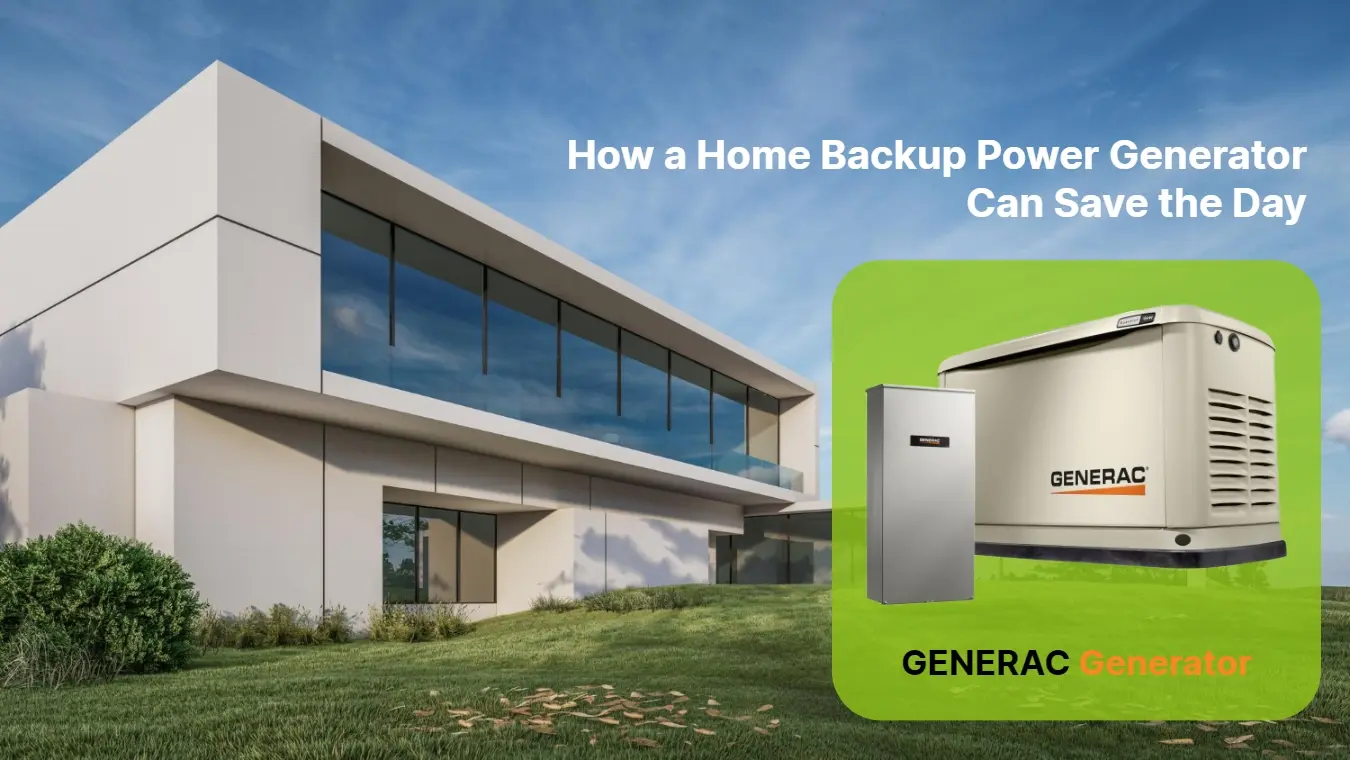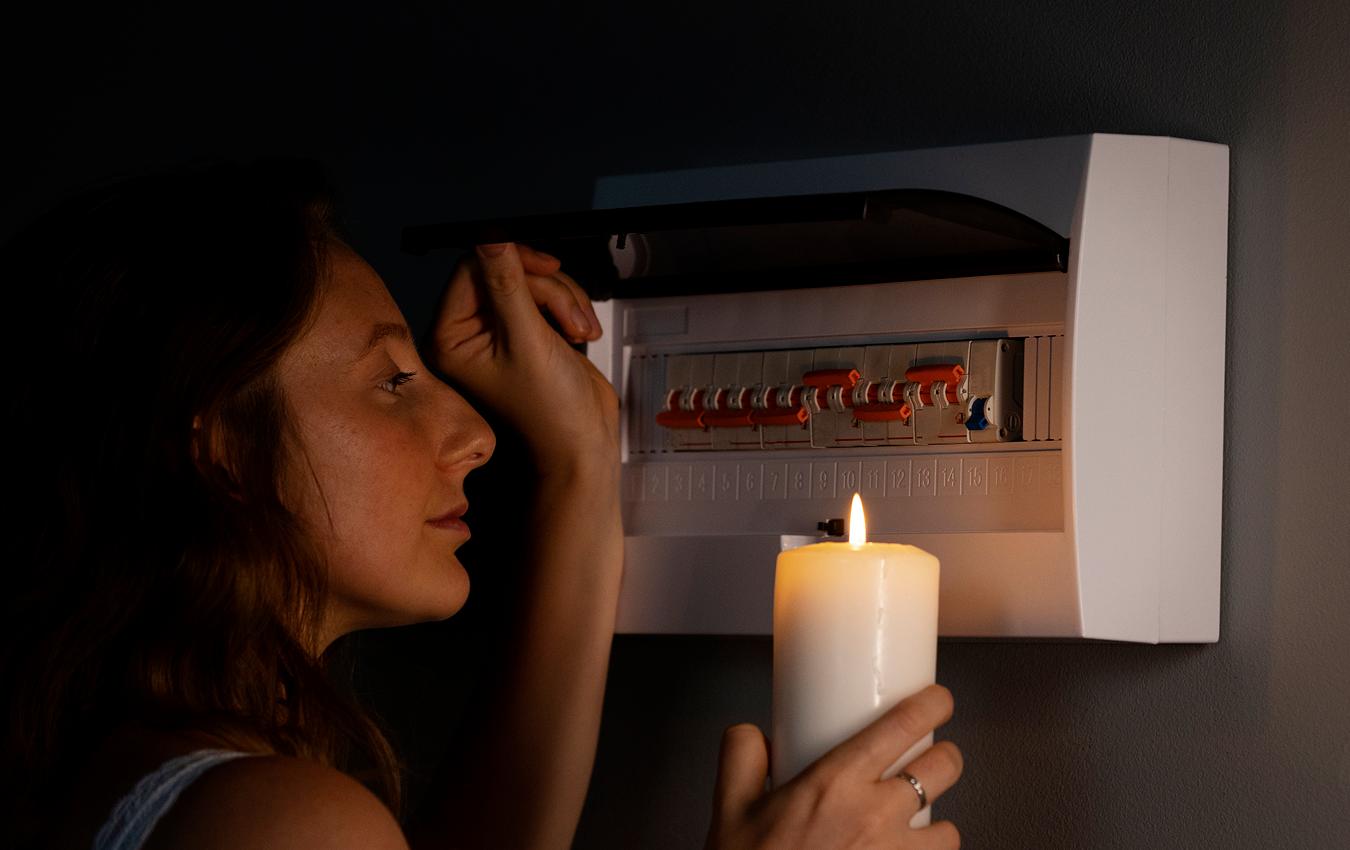Are you tired of being caught off guard by power outages? Imagine never having to worry about spoiled food, disrupted work, or uncomfortable nights without electricity. With a home backup power generator, peace of mind during power outages becomes a reality. In this fast-paced world where we rely heavily on electricity for almost everything, a backup power generator has become an essential asset for any homeowner. Whether it’s a storm, a blackout, or a technical issue, a backup generator ensures that your home remains powered and functional. In this article, we will explore the many benefits of having a home backup power generator, from keeping your appliances running to maintaining a comfortable living environment. Join us as we delve into the world of backup power and discover how it can save the day during unexpected outages. Don’t let power outages disrupt your life any longer – invest in a home backup power generator and enjoy uninterrupted peace of mind.
The Importance of Having a Backup Power Generator
Power outages can bring life to a standstill, causing inconvenience, frustration, and potential financial losses. When the lights go out, you are left in the dark, unable to use essential appliances, charge your devices, or even heat or cool your home. However, by investing in a home backup power generator, you can eliminate these concerns and regain control over your living environment.
A backup power generator acts as a safety net, automatically kicking in when the main power source fails. It provides an uninterrupted power supply, allowing you to maintain your daily routines and ensuring that critical systems, such as security alarms, refrigeration, and medical equipment, continue to operate. By having a backup generator, you can avoid the inconvenience of power outages and protect your home and family from potential risks.
In addition to the practical benefits, a backup power generator also offers peace of mind. Knowing that you are prepared for any power outage gives you a sense of security and reduces stress during uncertain times. Whether it’s a short-term blackout or an extended period without electricity, a backup generator ensures that you and your loved ones are not left in the dark.
How Home Backup Power Generators Work
Home backup power generators are designed to provide electricity during power outages by converting fuel into electrical energy. These generators typically run on diesel, natural gas, or propane and are connected directly to your home’s electrical system. When the main power supply fails, the backup generator automatically detects the outage and starts generating electricity, ensuring a seamless transition without any interruption to your power supply.
Backup generators consist of several key components, including an engine, an alternator, a control panel, and a transfer switch. The engine is responsible for converting the fuel into mechanical energy, which is then used to rotate the alternator. The alternator generates electrical energy by converting the rotational motion into electricity, which is then distributed throughout your home via the control panel and transfer switch.
To ensure a reliable power supply, home backup power generators are equipped with features such as automatic startup, load management, and overload protection. These features allow the generator to kick in automatically within seconds of a power outage, manage the distribution of electricity to different appliances and systems, and protect the generator from damage due to excessive electrical loads.
Learn more about the benefits of Home Backup Power Generator for you during a power outage?
Premier Electrical Services can help you decide which backup generator you need for your home. Call us by phone, 954-900-1696 or request a free consultation.
Factors to Consider When Choosing a Home Backup Power Generator
When selecting a home backup power generator, it’s crucial to consider various factors to ensure that you choose the right generator for your specific needs. Here are some key factors to consider:
Power Capacity
Determine the total power capacity you require during a blackout. Consider the essential appliances and systems you want to power, such as refrigerators, lighting, heating or cooling systems, and medical equipment. Calculate the total wattage needed and choose a generator with sufficient capacity to handle this load.
Fuel Type
Decide on the fuel type that best suits your needs and availability. Diesel, natural gas, and propane are the most common fuel options. Consider factors such as fuel costs, availability in your area, and the generator’s fuel consumption rate.
Noise Level
Pay attention to the noise level produced by the generator. Generators can be noisy, especially if they are located near living spaces. Look for models with noise-reducing features, or consider installing a soundproof enclosure.
Installation Requirements
Consider the space available for installation and any specific requirements for electrical connections, ventilation, and fuel storage. Ensure that your chosen generator can be installed safely and complies with local building codes.
Budget
Set a budget for your generator’s purchase and installation. Consider not only the initial cost of the generator, but also ongoing maintenance, fuel costs, and any additional accessories or installation requirements.
By carefully considering these factors, you can select a home backup power generator that is reliable, efficient, and suited to your specific needs.
Installation and Maintenance of Home Backup Power Generators
Installing a home backup power generator requires professional expertise to ensure a safe and efficient setup. It’s essential to hire a licensed electrician or generator installation specialist who can assess your home’s electrical system and determine the best location for the generator. The installation process typically involves the following steps:
1. Site Assessment
The installer will evaluate your property and determine the optimal location for the generator, considering factors such as proximity to the main electrical panel, fuel source availability, and noise considerations.
2. Permitting and Compliance
Depending on your local regulations, you may need to obtain permits for the installation. The installer will handle the necessary paperwork and ensure compliance with building codes and safety standards.
3. Electrical Connections
The installer will connect the generator to your home’s electrical system, ensuring that it is properly grounded and integrated with the main electrical panel. This ensures a seamless transfer of power during outages.
4. Fuel Source Connection
If you have chosen a generator that runs on natural gas or propane, the installer will connect it to the appropriate fuel source, ensuring a safe and reliable fuel supply.
5. Testing and Commissioning
Once the installation is complete, the installer will test the generator to ensure it operates correctly and is ready to handle power outages. They will also provide you with instructions on how to operate and maintain the generator.
Regular maintenance is essential to keep your home backup power generator in optimal condition and ensure its reliability during power outages. It’s recommended to schedule professional maintenance at least once a year to inspect and service the generator. Additionally, you should perform routine checks, such as monitoring fuel levels, testing the generator periodically, and keeping the surrounding area clean and free of debris.
Benefits of Owning a Home Backup Power Generator
Owning a home backup power generator comes with numerous advantages that go beyond simply keeping the lights on during a blackout. Here are some key benefits:
Uninterrupted Power Supply
The most obvious benefit of a backup generator is the ability to maintain power during outages. This means you can continue using essential appliances, stay connected to the internet, and keep your home comfortable and functional.
Protection for Critical Systems
A backup generator ensures that critical systems, such as security alarms, sump pumps, and medical equipment, remain operational during power outages. This protects your home, prevents water damage, and ensures the safety and well-being of your family.
Preservation of Perishable Items
With a backup generator, you can avoid the frustration and financial losses caused by spoiled food during extended power outages. The generator keeps your refrigerators and freezers running, preserving perishable items and minimizing waste.
Work and Productivity
Power outages can disrupt work and productivity, especially if you work from home or rely on electronic devices for your job. A backup generator allows you to continue working without interruptions, ensuring that deadlines are met and productivity is maintained.
Comfort and Convenience
Maintaining a comfortable living environment is essential, especially during extreme weather conditions. A backup generator powers your heating or cooling systems, fans, and other comfort appliances, allowing you to stay comfortable and sleep peacefully even during power outages.
Increased Home Value
Installing a home backup power generator can increase the value of your property. Potential buyers value the security and convenience provided by backup generators, making your home more attractive on the market.
Different Types of Home Backup Power Generators
Home backup power generators come in various types, each with its advantages and considerations. Here are the most common types of backup generators:
Portable Generators
Portable generators are versatile and offer a temporary power solution during outages. They are typically fueled by gasoline and can be moved around to power different appliances or areas. However, they have limited power capacity and require manual operation and fuel refilling.
Standby Generators
Standby generators are permanently installed outside your home and are connected directly to your electrical system. They are designed to automatically start and provide power during outages, making them a convenient and reliable backup power solution. Standby generators can run on natural gas, propane, or diesel and offer a higher power capacity than portable generators.
Inverter Generators
Inverter generators are a more advanced and efficient type of portable generator. They produce cleaner and more stable power, making them suitable for sensitive electronics and devices. Inverter generators are also quieter, more fuel-efficient, and offer longer run times compared to traditional portable generators.
Solar-Powered Generators
Solar-powered generators use solar panels to convert sunlight into electricity. These generators are environmentally friendly, quiet, and operate without the need for fuel. They can be a useful backup power solution in areas with ample sunlight, but they may have limited power capacity and rely on battery storage for continuous power supply during the night or on cloudy days.
Each type of generator has its advantages and considerations, so it’s important to evaluate your specific needs and preferences when choosing the right generator for your home.
Choosing the Right Size and Capacity for Your Home Backup Power Generator
Selecting the right size and capacity for your home backup power generator is crucial to ensuring that it can handle your power needs during outages. Here are some steps to help you determine the appropriate size:
List Your Appliances
Make a list of the essential appliances and systems you want to power during outages. Include items such as refrigerators, lighting, heating or cooling systems, and medical equipment.
Determine the Wattage
Find out the wattage of each appliance by checking the labels or user manuals. If the wattage is not listed, you can use an online wattage calculator or consult an electrician.
Calculate the Total Wattage
Add up the wattage of all the appliances to determine the total power capacity you need. Keep in mind that some appliances, such as refrigerators or air conditioners, may require additional power during startup.
Consider Load Management
If the total wattage exceeds the capacity of your generator, you may need to prioritize which appliances or systems to power during outages. Consult an electrician to help you manage the load and ensure that critical systems are given priority.
By following these steps and consulting a professional, you can choose the right size and capacity for your home backup power generator, ensuring that it meets your power needs during outages.
Safety Considerations for Using a Home Backup Power Generator
While home backup power generators provide numerous benefits, it’s essential to prioritize safety when using them. Here are some important safety considerations:
1. Proper Ventilation
Ensure that your generator is installed in a well-ventilated area to prevent the buildup of carbon monoxide, a colorless and odorless gas that can be deadly. Generators should never be operated indoors or in enclosed spaces.
2. Fuel Storage
If your generator runs on gasoline or diesel, store the fuel in approved containers in a safe location away from living areas and potential ignition sources. Follow local regulations and guidelines for fuel storage.
3. Generator Placement
Place your generator on a stable, level surface away from combustible materials. Maintain a safe distance from windows, doors, and air intakes to prevent exhaust fumes from entering your home.
4. Electrical Safety
Only use properly rated extension cords and ensure that they are in good condition. Avoid overloading the generator or the electrical circuits by managing the power load effectively.
5. Maintenance and Inspections
Regularly inspect and maintain your generator according to the manufacturer’s guidelines. Schedule professional maintenance to ensure that all components are functioning correctly and to address any potential issues.
By following these safety guidelines and prioritizing proper installation and maintenance, you can enjoy the benefits of a home backup power generator while minimizing risks.
Popular Brands and Models of Home Backup Power Generators
When it comes to home backup power generators, several reputable brands offer reliable and high-quality options. Here are some popular brands and models to consider:
Generac
Generac is a well-known brand in the backup power industry, offering a wide range of standby and portable generators. Their models are known for their reliability, durability, and advanced features such as automatic startup and load management.
Kohler
Kohler’s generators are renowned for their high-quality construction and reliable performance. They offer a variety of standby generators that are designed to seamlessly integrate with your home’s electrical system and provide a reliable power supply during outages.
Briggs & Stratton
Briggs & Stratton is a trusted name in the generator market, offering a range of standby and portable generators. Their models are known for their ease of operation, fuel efficiency, and quiet operation.
Honda
Honda is known for producing reliable and fuel-efficient generators. Their inverter generators are popular for their clean power output, quiet operation, and compact design.
Cummins
Cummins generators are known for their durability, high-power capacity, and advanced control systems. They offer a range of standby generators suitable for both residential and commercial applications.
When choosing a generator, consider factors such as power capacity, fuel type, noise level, and reliability. Research customer reviews, consult professionals, and compare different models to find the generator that best suits your needs.
Conclusion: Peace of Mind with a Home Backup Power Generator
Power outages can disrupt our daily lives and cause inconvenience and frustration. However, investing in a home backup power generator can provide peace of mind and ensure that your home remains powered and functional during outages. From preserving perishable items to maintaining a comfortable living environment, a backup generator offers numerous benefits that go beyond simply keeping the lights on. By considering factors such as power capacity, fuel type, and safety considerations, you can choose the right generator for your specific needs. Whether it’s a portable generator for temporary power or a standby generator for seamless backup power, investing in a home backup power generator is a wise decision that will bring you security and peace of mind for years to come.
Don’t let power outages disrupt your life any longer – invest in a home backup power generator and enjoy uninterrupted peace of mind. Premier Electrical Services has to offer to keep your home safe and secure, please contact us at phone: 954-900-1696 or send an application for a quote.
Check out the latest news:
- Commercial Energy Audit: Spotting the Sources of Energy Waste
- Protect Your Fort Lauderdale Home with Whole-House Surge Protection
- Power Outages in Fort Lauderdale: How to Protect Your Home
- Preparing for a Home Rewiring Project: A Checklist for Homeowners
- 5 Critical Signs You Need a Whole-House Surge Protector






